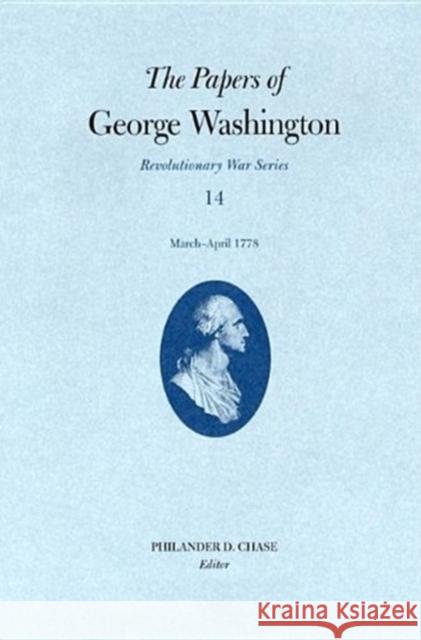The Papers of George Washington, Revolutionary War Volume 14: March-April 1778 » książka
The Papers of George Washington, Revolutionary War Volume 14: March-April 1778
ISBN-13: 9780813922829 / Angielski / Twarda / 2004 / 755 str.
Volume 14 of the Revolutionary War Series opens on 1 March 1778 with Washington praising his troops for their -uncomplaining Patience during the scarcity of provisions in Camp- and exhorting them to persevere in the face of any -occasional- shortages that might yet occur. Indeed, the documents generated during these two months of the army's stay at Valley Forge demonstrate that although the crisis had passed, shortages, especially of clothing, continued to concern Washington. The problem was magnified as the commander in chief turned his attention to gathering men and supplies for the upcoming summer campaign. The questionable readiness of the army was a constant theme of his correspondence. The campaign preparations also included training, which was hampered by a serious shortage of officers despite Washington's efforts to discourage resignations and absenteeism. To alleviate that problem, Washington continued to urge Congress to make the reforms that he had recommended to improve the status and organization of the officer corps. Meanwhile, systematic drills commenced under the inspection of Steuben and increased army discipline. Washington and British general William Howe took advantage of the relative inaction of their armies to conduct prisoner exchange negotiations that ultimately broke down over questions about the generals' status and authority, but the months were not without military action. British and American foraging led to significant skirmishes in New Jersey and lesser activity in Pennsylvania. There Washington also wrestled with questions about how to treat those inhabitants who carried goods to sell to the enemy and those, such as the Quakers, who were considered unfriendly to the American cause. The problem of disunity among Americans also leaped to Washington's attention in mid-April when news of a peace initiative in the British Parliament reached Pennsylvania. He urged immediate efforts to counter the -insidious proceeding.- By late April, Washington was ready to consult his generals about plans for the ensuing campaign, asking whether it would be best to attempt to drive the British from Philadelphia by assault or siege, to shift the campaign with a strike against New York City, or to remain in camp drilling the army until the British took the field. The generals' replies were instructive, but the -glorious news- of the treaty of alliance with France, which reached Washington as this volume closes, ensured that a subsequent conference, called for early May, would have new factors to consider.











